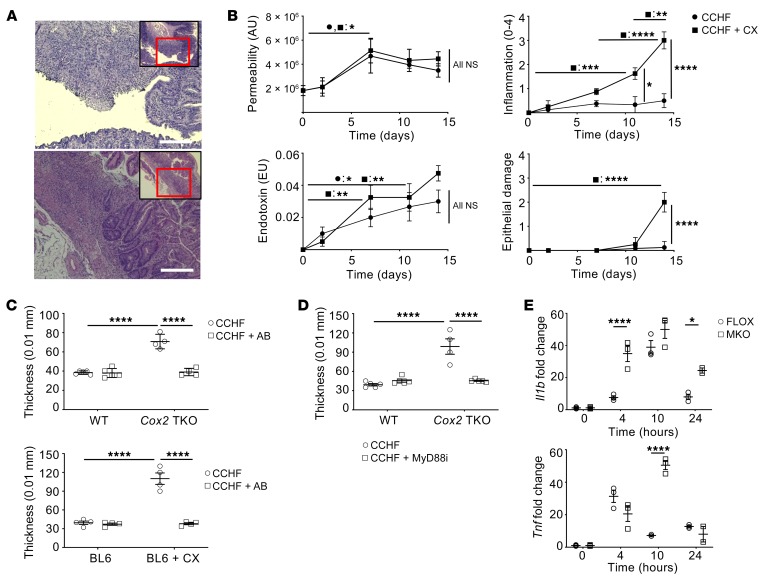Figure 1. Dysregulated response to TLR-dependent signaling drives intestinal inflammation in the COX2-KO/CCHF models of IBD.
*P < 0.05; **P < 0.01; ***P < 0.001; ****P < 0.0001. (A) Mice treated with Cox2-TKO (upper panel) and BL6 + celecoxib (CX) (lower panel) develop transmural and sporadically ulcerating inflammation in their ileo-ceco-colic junctions when fed CCHF for 2 weeks (representative images). Scale bars: 250 μm. (B) C57BL/6J mice fed CCHF diet with or without CX were assessed at multiple time points (n = 4 mice/group/time point). CCHF significantly increased whole intestinal barrier permeability over the course of 0–7 days independently of CX (upper left panel). Endotoxin in portal vein serum significantly increased in both groups by 7 days (lower left panel). Inflammation significantly increased in CX-treated mice by 11 days (upper right panel), whereas epithelial damage did not significantly increase until day 14 (lower right panel) (histological assessments, 0–4 point scale). (C) Mice were pretreated with vancomycin, ampicillin, neomycin, and metroniadazole for 7 days and continued on antibiotics (AB) for 14 days of CCHF or CCHF + CX (n = 4/group). AB abrogated intestinal inflammation in mice treated with COX2-TKO (upper panel) and mice treated with C57BL6 + CX (BL6 + CX) (lower panel), as assessed by ileo-ceco-colic thickness. (D) Cox2-TKO and WT mice were treated 3 times per week i.p. with the MyD88 inhibitor T6167923 (0.25 mg/injection) over the course of 2 weeks on CCHF (n = 5/group). MyD88 inhibition (MyD88i) significantly inhibited intestinal inflammation in Cox2-TKO mice. (E) Cox2-MKO significantly enhanced RNA expression of Il1b (upper panel) and Tnf (lower panel) in LPS-activated BMDMs compared with FLOX controls (n = 3/group) (fold change vs. FLOX, 0 hours) (statistics shown only for FLOX vs. MKO). Two-way ANOVA and Tukey’s multiple comparisons test with adjusted P values were used for statistical analyses.

